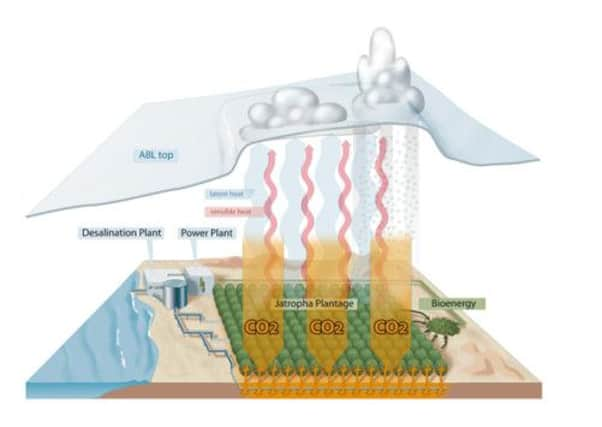Planting trees in desert may halt climate change


So-called ‘carbon farming’ would involve planting trees on a large scale in dry regions. The new study recommends the Jatropha curcas, a small tree highly resistant to dry conditions, which could be planted in hot, dry countries and in areas unusable for food production.
Using a variety of computer models and data from plantations in Egypt, India and Madagascar, the researchers estimate that covering 3 per cent of the Arabian Desert could absorb all the CO2 produced by German vehicles within a few decades.
Advertisement
Hide AdAdvertisement
Hide AdCompared with other highly technical and expensive geoengineering techniques for carbon capture, the authors say this technique is “efficient and environmentally safe”, and competitively priced.
The disadvantage of this technique is that the trees still require water and so ideally would be situated near coasts where desalinated seawater could be produced. Setting up these plantations would therefore be costly, but this could be offset in the long run by using the trimmings from the trees to create some of the power needed to provide water.
However, before such projects could go ahead, there are still uncertainties as to how such extensive plantations might alter the local climate – this could include increased cloud cover and rainfall – and what affect the salt accumulated from the desalination might have on the desert.
First-author Klaus Becker, of the University of Hohenheim, Stuttgart, said: “From our point of view, afforestation as a geoengineering option for carbon sequestration is the most efficient and environmentally safe approach for climate change mitigation. Vegetation has played a key role in the global carbon cycle for millions of years.”